|
Growing up in the 90’s meant a lot of time with family movie nights, being ridiculously goofy before social media was a thing, and quoting some classic cartoons. There is one that stands out: Peanuts. Some of the characters include Charlie Brown, Sally, Linus, Lucy, and, of course, there is Schroeder. Although those are some of my favorites, the cast was big and the movies and episodes covered a variety of topics and seasonal fun for all. We’d sometimes quote various parts (as one does) in our regular conversations, like when Charlie Brown says, “Good Grief” anytime he is dismayed, or when Sally asks for gifts for Christmas, “Just send money, how about 10s and 20s?” The music, written by Vincent Anthony Guaraldi, is catchy and helps tell a story, plus the character that plays the piano, Schroeder, provides the friends a chance to dance to the theme song. My brother learned that song when we were kids and he played it every single chance he had - just like his favorite character Schroeder. You see, Jon Kirby was the type of musical genius that, once he learned to play piano, could hear a song and teach himself to play it. He read music, saw music, and felt music, and Peanuts songs were some of his favorites to play. Later, when he began writing music of his own, he penned something so whimsical, that it required 21 hands to play it. Every pianist who had the honor of playing it told him how fun it was to play something so silly yet jazzy, and I am certain that was some homage to Guaraldi. Tragically, my brother passed away in November of 2023 from an unexpected heart condition, and I have been grieving his loss every day since then. I am coming to terms with accepting it more as time goes on and I am seeking help for healing, but it has been hard and sad and terrible to endure. Someone full of so much life to live, suddenly gone and taken.
Grief is a weird thing, it makes people act differently and no one quite knows how to do it “right.” Am I grieving enough? Is my grieving showy? Should I take time to spend on how I am feeling or do I keep pushing through? Do I talk about it or not talk about it? How can praying help and if it helps, how will I know? What is up and what is down, and why do people care about ridiculous things when my loved one is gone? These are all thoughts and feelings one might have, and when you peel away all these questions, it reveals the sad human who has been met with an atrocious reality. There has been a tragic loss and we are sad, angry, anxious, scared, heartbroken, and scarred from it. Our mind tries to make sense of it, but we cannot. Our hearts seek answers and we are often left without any. Our bodies are here while our focus is stuck on this tragic loss and it is hard to turn our fixated selves to other things. For me in this time of grief, I have been letting myself cry whenever I need to. I have been reaching out to family and friends to talk and share stories, but where do I go from here? A friend of mine Sarah Frances, who has had her share of grief in the past decade, lost both of her parents and still maintains a life of joy and fun and work and remembering. She is inspiring. I asked what advice she had for me and I thought her words were profound: “When you lose someone it is never the right time. But one of the greatest connections that we have to every single person is that we all go through this at some point and [someone] knows almost exactly what you are feeling.” She went on to say, “It does not matter if you lose someone you love, hate, tolerate, are related to…loss hurts, but you are not alone.” You are not alone. She is right that I am not alone, even if the pain feels like no one else could understand. Some people understand. I have been surrounded by so many loved ones and friends and acquaintances who have checked in and offered support. I have heard from people who I have never met, but who knew Jon. It’s been humbling and lovely, but painful and heartbreaking too. The community that has surrounded not just me, but my dad and my sisters, and his wife and her family, is just so full of love and I cry thinking about how grateful I am for all of it. The love from others is what got me through some days, like my husband who lets me just sob some nights and I know he will always hear me out when I am having a hard time with it, comforting me with a warm embrace. Even my little 4 year old has now experienced grief, and keeps me moving forward while remembering happy times. It is all hard, but it is good to have a village to go through it with. Isaiah 41:10 says, “So do not fear, for I am with you; do not be dismayed, for I am your God. I will strengthen you and help you; I will uphold you with my righteous right hand.” This connects it all for me. I have felt Christ in so many people. I feel strengthened in knowing that I am not alone in not only my grief, but my grieving journey, my faith journey, and the people walking alongside me in life. I am seeking God and finding God in the people and the kindness, and to me, this feels like “good grief” if that could be a thing. Life is hard. We can do it. Good grief!
1 Comment
My grandfather, my Grandpa Norm, passed away the day after Thanksgiving. He was ninety-three and had been in failing health for a while, and earlier that week, he decided he was ready to bring in hospice, who kept him comfortable and without pain in his final days. While I miss him terribly, I know that he had a long, happy life, and I pray that he is feasting at the eternal banquet in heaven with my grandma, his parents, siblings, and many friends and family members. Grandpa Norm was my last grandparent to die. I was so fortunate to have had all four grandparents until I was nineteen. All four grandparents were major parts of my childhood (and with two of them, my adulthood), and the death of each of them holds a unique place in my heart. With the death of my last grandparent, those parts of my heart are being tugged a bit harder right now. The funny thing about grief is that it hits you in ways you cannot anticipate. My family and I drove from Washington, DC to Michigan for the services for my grandpa, and on our nine-hour drive home, I was making a mental to-do list of all of the holiday tasks I needed to accomplish when we returned home. One included working on our Christmas cards, and the grief came flooding as I realized I would have to remove my grandpa from our Christmas card list and that we would not be sending him a gift. It was something so small, but it hit me in a big way. Grief is hard. There is no way around it. The beauty of our faith, though, is that we know there is more after this life. We know we will be reunited with those loved ones we miss so dearly, and we must cling to that hope when we are deep in grief. We have to go through the darkness and sadness of Good Friday in order to experience the light and joy of Easter Sunday. In some ways, I am grateful for the timing of my grandfather’s death to have been at the beginning of Advent. The season of Advent is a time for reflection and preparation. During Advent, we prepare our hearts for the coming of Jesus not only at his birth, but also at his Second Coming. For me this year, I am adding another dimension to my time of reflection: remembering my grandparents, my grandfather especially, and being grateful for the gift they were in my life. There is something about this time of the year that lends itself to grief: the weather where I am is cold and damp, darkness comes sooner than I want it to, and there is a rush of busyness that often distracts me from the importance of this time leading up to Christmas. But in the sadness and darkness of this time—this year in particular for me—I look forward to the light of Christ entering the world on Christmas day and to his glorious return at the end of time. In the past few months, most of us have had to confront loss. Some of those losses have been very visible and salient, costing us our jobs, loved ones, and financial security. Others have been less tangible, and yet still impact large parts of our lives: important events have been placed on hold or canceled, relationships have been strained due to distance, and the feeling of having things to look forward to has dissipated. In the aftermath of stay-at-home orders and the pandemic, those of us with these less visible losses might find ourselves minimizing the pain or disappointment we feel. We might compare our smaller losses with those who have undoubtedly encountered more suffering than we have. We may feel that compared to others who have lost jobs, loved ones, homes, or security, we have no right to feel sadness, anger, or disappointment. We might even be preventing ourselves from experiencing grief. Grief is something natural to our human journey. Like other emotions and emotional processes that we experience as human beings, grief provides us with information to our minds and bodies so that we can survive. In the face of loss, grief serves the purpose of communicating to us that we have encountered a lack of something that was formerly present and available to us. Whether it is the loss of a loved one, job, role on a team or in a workforce, friendship, feeling of security, or a sense of hope, grief helps communicate to us what is most important in our lives. In other words, grief helps inform us regarding what we set our hearts on and what brings us joy and safety. Grief not only touches the realm of the emotions and the psyche; it also is essential to our faith tradition. In Scripture, the words of grief are especially echoed in the psalms: “My tears have been my bread day and night, as they ask me every day, “Where is your God?” Those times I recall as I pour out my soul, When I would cross over to the shrine of the Mighty One, to the house of God, Amid loud cries of thanksgiving, with the multitude keeping festival. Why are you downcast, my soul; why do you groan within me? Wait for God, for I shall again praise him, my savior and my God.” (Psalm 42: 4-6) We even see Jesus grieve several places in the Gospels, such as at the death of his friend Lazarus (John 11:35), and even at the suffering he was to experience to carry out our salvation (Luke 22:44). In Catholic funerals, we name and acknowledge the reality of grief in our prayers during our liturgical rites—an important part of believing in and living with Paschal hope. Grief is not just an emotional process for death or large losses. While it is important to keep a clear perspective about the magnitude of the losses we experience in comparison to the suffering of others, grieving the less tangible and visible losses we experience is an important step to healing and cultivating our mental and emotional health. Additionally, ensuring that we allow ourselves to experience grief, even in response to comparatively smaller losses, can help us grow in holiness. Experiencing grief can help us to find new meaning in our faith, deepen our relationship with God and others, and continue to grow in knowledge of ourselves before God. So, how are we to allow ourselves to grieve the smaller losses we have experienced in recent months? What are some ways to grieve the rescheduled or canceled graduations, weddings, and festivals, or the lack of opportunity to do the things we enjoy or to spend time with people whom we love? Emotional Processing vs. Emotional Bypassing Instead of dismissing ourselves or invalidating the emotions we are experiencing (also known as emotional bypassing), we can allow ourselves to grieve more fully by feeling our emotions and asking questions about what we feel, otherwise known as emotional processing. For example, instead of dismissing how we feel by thinking, “It could be worse!”, it is more helpful to our healing to ask questions such as “What is my sadness and anger telling me about what I love or what’s important to me?” In acknowledging our pain and asking ourselves questions about how we feel, we can grow in self-knowledge and self-understanding about the way in which God has created us. We can also engage in processing with a trusted friend, mentor, or mental health professional. Allowing Physical Release Grief, like other emotions and emotional processes, makes itself known in our bodies. Physical pain, muscle aches, clenched jaws, and a racing heartbeat can all be caused by grief, stress, and anxiety. It is important to process these emotions physically so that they do not remain stuck in our bodies. Breathwork, exercise, crying, and movement allows us to feel grief and allow it to process through our body. Journaling, since it requires movement of the hands, is also a helpful tool for engaging grief through our bodies. Authenticity in Prayer We are the beloved children of God; God looks upon us with love, care, and concern with whatever we bring to prayer. Talking to God honestly about our disappointment, sadness, or anger brings us closer in relationship with God. In prayer, God is not judging us for what we do or do not say. For this reason, we can be totally authentic with God in prayer. We might feel like we should have a different emotional response to our losses from what we are experiencing, but God’s love is unconditional and infinite: we don’t have to worry about appearing perfect before God. Grieving the large and small losses of the last few months is not only important, it is human. How can we enter more deeply into our grief to find healing? What in our lives do we need to grieve?
It was my spiritual director who first introduced me to the phrase new normal which has since become quite common in the days of COVID-19. At the time I learned this phrase, my Dad was sick, the situation was changing by the day, and my spiritual director shared a piece of wisdom with me: clinging to the past with no regard to where we stand in the present, let alone where we will stand in the future, is of little good. This doesn’t mean that we can’t look back fondly on memories and experiences—we should—but sometimes it’s necessary to shift our gaze from what was normal to what is our new normal. Turn on the news and we’re bound to hear this phrase mentioned. The elimination of handshakes, added temperature screenings before flying or entering large venues, social distancing—these are all changes that are tossed around as potential aspects of our new normal. Inherent to the new normal is grieving the loss of what used to be normal. On a recent podcast, Brené Brown, a research professor and speaker, spoke with David Kessler, an author and expert on death and grief, about how we, as a world, are collectively grieving during COVID-19. Their first premise is that we must name our grief before we can take it on. As we look to a new normal, we will likely find ourselves grieving many of the simple acts we might have taken for granted. So many of these aspects of our new normal are so far into the future and so uncertain that it might not be fitting for us to focus on them for too long lest we begin to fear for something not even guaranteed for the future. That doesn’t mean that we are not still mourning the loss of our normal and experiencing a new normal every single day. I celebrated my best friend’s birthday last week by sitting 12 feet apart and talking from a distance without even being able to share a hug. For those who have loved ones in hospitals or nursing homes, the difficult and sometimes downright terrifying new normal is not being able to visit them, to comfort them, or to be comforted ourselves. Our new normal might include grieving not being able to go to the store because it’s closed or because we are considered high risk if we contract the virus. In one way or another, we are all facing a new normal, but we must fight the urge to compare whose new normal is worse or more challenging. The necessity to find a new normal isn’t new in itself. After 9/11, we were also forced into a new normal. The same occurred after World War I, World War II, the Spanish Flu, The French Revolution, and the Great Plague which all forced society to adopt a “new normal”. A new normal, however, doesn’t have to be a bad thing. The printing press, the steam engine, and the discovery of penicillin all created a new normal that we are thankful for. Of course, the greatest events which created a new normal were the life, death, and Resurrection of our Lord, Jesus Christ. Think of the Apostles, such as James and John, who were called from a fishing boat to follow Jesus. Their entire conception of normal changed forever in that instance. As our Lord hung from the Cross on Good Friday, the world (especially that of the disciples) faced a new normal. How dejected afterwards were the two on the Road to Emmaus with their new normal, one that seemed to go on without the man they had come to know as the Messiah? Then of course, Jesus rose on the third day; He had defeated sin and death, and an eternal new normal was ushered into the world. That is the new normal which we can turn to in every moment when our lives are forced into a new normal we may not have asked for. Jesus Christ, God made flesh, He who was and is and is to come, gave all of creation a new normal which rings eternal. Nothing that happens in our world can change what He did for us in His life, death, and Resurrection. We are faced with a constantly changing new normal and we have to name our grief and understand that some of what we once knew is no longer our normal. In doing so, may we always be rooted in Christ who stands above the chaos as the rock of our salvation.
 This Easter season, I have been thinking a lot about my late brother Tim, who died in an accident seven years ago - at the age of 24 - while serving as an EMT in Indianapolis, IN. Tim’s death, along with the death of his IEMS partner Cody Medley, left all their friends and families at an inestimable loss. While I never got to meet Cody personally, I have learned that he was an exceptionally driven and talented young person who also served as a fire cadet before becoming a paramedic. Tim’s story is not much different; he was an Eagle Scout and volunteer EMS before going professional and passing his paramedic certification shortly before he died. In life, Tim achieved success in almost every field. As a teenager he won academic and musical scholarships and posted regular five-minute miles in outdoor and indoor track. He mastered Mandarin and spent an immersion summer in Shanghai. He participated in a service trip to Jamaica and volunteered back home as a “running buddy” alongside students with special needs in Central Park. These successes, paired with his later commitment to the medical profession, truly made him “A Man for Others” – the Jesuit motto of his alma mater, NYC’s Regis High School. Only looking backwards have I come to appreciate how brilliant Tim was. Perhaps you have a similar person in your family – someone who is so smart that they are intimidating. Tim was fearless in challenging others (especially those in authority) when he thought they were wrong. I have thought of him throughout this entire pandemic. As a first responder, I know that he would be helping wherever help was needed. As the outspoken person he was, I know he would have choice words for those he felt were ignoring public safety protocols. And most of all, as a cuttingly funny person, I know he would help me laugh during this time. Tim died three days into Lent, on February 16th, 2013. I have remembered him especially during every Lent and Easter since then. This past Lent was perhaps the most difficult yet. Many say that it takes seven years to heal from losing a loved one. The year 2020 marks seven years for all who loved Tim. To me, I felt healing – which also meant letting my guard down to feel fully the pangs of loss I couldn’t afford to feel in 2013. The coronavirus situation, if nothing else, has clarified the relationship between life and death. We are all vulnerable humans. This can be a scary thought, but also a freeing one. This can be a time to meditate on life as what it is – a short chance to grow, love, and serve others. We do not know how long the journey will last. I sometimes think that my brother attacked life the way he did because he might have sensed that he had less time than others. He used to wake me up after midnight, for instance, after I had already gone to bed, and say “Come on bro, get up, let’s make some memories.” At the time I thought he had a screw loose. Now I think he was prophetic. Recently in the Gospel readings, we hear Jesus tell the disciples, “Peace I leave with you; my peace I give to you. Not as the world gives do I give it to you. Do not let your hearts be troubled or afraid.” These words are a balm to all of us who have experienced loss, or who fear loss during these challenging times. As I read this passage, I am touched by the care and concern Jesus shows for his followers. He is also being quite honest with them and reminding them that they will lose him. The promise of peace is made realer by the reality of loss. This is what I receive from today and feel to be true in my own life. One year after Tim’s death, on Easter Sunday 2014, my family went to Mass in a church we had never been to before. The previous year had been difficult for everyone. Personally, I had not been taking care of myself mentally, physically, or spiritually. In the prior twelve months, I had not felt anything approaching peace. I was experiencing great fear and having awful panic attacks. That morning, sitting in the pews, waiting for Mass to begin, I suddenly noticed all sound around me fade out. I felt a sensation of all the breath leaving my body – and then my next breath was a slow, purposeful breath that was like drinking cool water in the desert. I was able to begin breathing in a deep and rhythmic way. Over the next few minutes, I felt as if warm light was streaming over me, from the head down. It was a feeling of complete release and relief. Ever since, I’ve been hoping to feel that peace again. Like my brother, I doubted (and still doubt) aspects of my faith. Tim wrestled to understand people who believe that faith and the intellectual life are incompatible. Being the true original that he was, I think he found it difficult at times to imagine a place in Christianity where he fit in. Yet after his death, I learned that some of Tim’s recent writings and reflections expressed the faith of a mature man who trusted in a loving God. I reflect on his words often as I remember my “kid brother” - who responded to numerous life-or-death situations and treated severe injuries which I would be terrified to walk into. Like everything else, Tim’s faith journey happened at a rate and intensity that most of us will never know. As Easter moves on and we navigate the new normal that is COVID-19, my spiritual suggestion (for what it’s worth) is this: In your prayers, dreams, and doings, try to let fear and hope co-exist. I will try to do the same. If we can hold those two seemingly irreconcilable opposites, we may find that peace can sprout like a flower right in between our hands. As I write this on May 9, it has been 54 days since the Diocese of Rockville Centre on Long Island, New York suspended all liturgies, devotions, meetings, and non-essential activities in parishes. This was the second major announcement for our parish family in East Patchogue in a 3-week period. At the beginning of March, our Capuchin Province of St Mary announced that we will be withdrawing our friars from the parish this summer. So, not only would we be without public Masses, we wouldn’t even have a chance to grieve our departure with the community. And if that wasn’t enough, only four days after beginning to stream Masses on Facebook Live, our pastor tested positive for COVID-19. This development put a halt on our community’s ability to be in common spaces and thus ending the live communication with our parish family. Although I tested negative, the four of us friars isolated ourselves in our rooms, staggered our meals for 45-minute periods three times a day, and wore masks and gloves any time we shadowed the friary halls. Many parishioners were asked to self-quarantine as well since they had come in contact with our pastor at Masses the previous weekend. During this time, several faithful parishioners passed away, both COVID and non-COVID related deaths. We couldn’t assist at their burials. We couldn’t anoint or reconcile those who requested the sacraments. In a word, we felt helpless. Unfortunately, one of our senior friars living here began experiencing symptoms. I needed to drive him to be tested for the virus, exposing myself again. He tested positive and a few days later was admitted to the hospital. With two days remaining in my 14-day isolation period, the count turned back to zero. As a community, for 34 days we never gathered, prayed, shared a meal, or even saw each other for more than a moment. I don’t share this with you so that you may feel bad for us or think how strong we are, because we all have our stories of how life is different now. For our parish community, the time in isolation in the midst of an impending transition and a world-wide pandemic offered us priests an opportunity to do what we could do rather than what we would do. The Code of Canon Law states, “in order to fulfill his office diligently, a pastor [& his vicar] is to strive to know the faithful entrusted to his care” (Can. 529 §1). The Code offers specific tasks of a pastor so that he can know his “flock,” almost all of which no one on Long Island is permitted to do at this time. Because of this, many suffer. They endure loneliness in the midst of death without a proper funeral Mass for a loved one. They crave the Eucharist and long to be in His presence in Adoration. They yearn for the words of absolution of their sins. Parents of children making First Communion and Confirmation wonder uneasily when their child will receive the sacraments and how that will be done. The fact is, we share in their suffering. We share in their suffering using the communication tools at our disposal in two ways: The first is the use of the telephone and visual communication. We listen to our parishioners’ emotions, encourage them to pray, and offer a joke now and then. For us, this has been our most effective ministry to personally “know” our parish family during this time. I also have a weekly Sunday Mass for friends and family from literally the four corners of the country (Maine, Alaska, San Diego, and Tampa). A simple call brings tremendous light into the darkness many experience in these times. Secondly, our lives as Christians, particularly in ministry, can often be characterized using Martha and Mary’s example (Luke 10). In a parish setting, Martha’s example of service tends to be the model. We as ministers have had a unique opportunity to partake in Mary’s ministry of contemplation. With time not often available, God has provided this opportunity to sit at Jesus’ feet to listen, pray, ponder, reflect, petition, grieve, laugh, cry, and wonder. In a time of uncertainty and pain for our little parish, it’s the best thing we can offer them. As Christians, we know that suffering is inevitable. It’s the cross. But, if the story ends there, we aren’t Christians. Because from death came life. From the brokenness, the sadness, even despair, life abounded in the Risen Lord. We, as Christians, MUST witness to this. We, as parish families, do not suffer alone. We suffer together. We suffer with Christ. We may at times feel helpless, but never hopeless. *a final note to say that everyone in our local friary is now healthy. When I made the shift to working from home almost a month ago, I was excited for a change of pace: sleeping in, a 30-second commute from my bed, working in pajamas all day, not packing a lunch. But when it came down to it, I became restless and had trouble settling down. Focusing on work was difficult. Being productive did not come easy, with my mind wandering for much of the workday. I had embraced the idea of a change of pace, but not the realities of what that change really meant.
Prayer, when I remembered to make time for it, was similarly difficult to settle into. It took me some time to realize what was happening, in part because I work in a secular field. Since I don’t spend my workdays in the Church sphere, I don’t have many explicit or subtle reminders that point my day toward God. Meetings don’t begin with a prayer. My daily tasks and conversations with colleagues don’t revolve around Church activities and ministry. I don’t interact with my pastor or bishop over the course of my day. And though I’ve made an effort over the years to weave prayer and reminders of God into my daily life, my routine has been disrupted. So, naturally, my prayer life has gone out the window. Another piece to mention is that I live alone. Normally, I have a number of social engagements in the evenings and on weekends, often with Catholic friends. Our interactions have a shared Catholic identity baked in and serve as additional reminders of faith. Now that I’ve been largely alone for a month, my days seem to blur together. It's become easy to turn in on my own thoughts and seek out distractions to numb the collective grief we’re all feeling: the loss of normalcy and a sense of security, cancelled plans, and the uncertainty of when we’ll return to some semblance of normal. And in the midst of that, I forgot to pray. It dawned on me that I’ve been given an opportunity and a challenge: I’ve been thrust into an unchosen solitary monastic existence. I have the once-in-a-lifetime chance to completely re-invent what “normal” looks like for me in almost every way. While I owe the company 8 hours of my day, 5 days a week, everything else is mine to do with as I wish. I have a blank canvas. I don’t have to dress for work, shave, or drive to and from the office. I don’t have a spouse or children to care for, no roommate, and no one to interact with here in my home... except God. If I choose to, I can rebuild “normal” with a different foundation and framework, one centered on God. But I don’t have to be a full-time hermit in order to do this well. It’s a lesson that came to me in the midst of prayer and reflection during the Paschal Triduum. Something in me tends to go too hard during Holy Week, especially on Good Friday, and I feel a need to do as much as I can to enter into the sacrifice of Calvary in solitude. Once the quiet of Holy Saturday came around, though, I realized that in the inner urgency to “do” Holy Week so well on my own, I’d forgotten to “be” in the presence of God. Here I was, waiting for Easter with nothing left to do and no one to do it with. All the prayers and meditations had been said, all the fasting was ended, and all I could do was sit and wait. It was a striking reminder that, oftentimes, we need to just be and make room for God to do some work in our lives. Archbishop Wilton Gregory, in his homily on Easter Sunday, noted how important the concept of time is to the story of our salvation, and that Easter “resets the clocks and calendars of our lives.” It's especially true in these days of being forced to reduce the externals. We have an opportunity and a choice here: to either enter into the quiet and craft something meaningful in our lives, or to just make more noise to drown out the vastness of that quiet. We’ve been making a lot of noise lately, often without realizing it. Thank God for the recent reminders of the power of the phrase, “Be still and know that I am God.” May we all take advantage of this opportunity to hit “reset” and allow God to direct us in those quiet moments. When we re-enter the world in a “new normal”, may we use the lessons from this time of isolation to shape what that normal really ought to look like. Jay Schaefer is a Professional Engineer in Baltimore, working to maintain and improve the region's transportation infrastructure. He sings in his parish choir and is involved with the Knights of Columbus. Jay is also a former staff member and current collaborator of the Catholic Apostolate Center. We are living through an unprecedented time. Just a few months ago, I couldn’t have been more excited for the spring weather, finishing maternity leave, and being able to bring my now-2-month-old to visit family and friends. That is not our reality. I am devastated that I cannot share my happiest joy with people who love my son in-person. My heart breaks for my grandmother who has never met her great-grandson, for relatives who live in different states who have yet to see him face-to-face, and for the inability to even host people safely at our home. It’s painful to think about, but knowing we’re staying safe and healthy is a relief. This past Easter weekend was when we would have been traveling to visit family. Instead of focusing on the “would-haves,” I’m challenging myself to live in the “right-nows” and the “will-bes” even though it is so difficult. Right now, my little son is snuggled and sleeping sweetly near me. Right now, my family is healthy and safe from the virus. We will be able to get through this together and will be okay when this is over, although there is no timeline to lean on. Right now, God is watching over us and protecting us as he has always done and will do. The season of Easter that just began serves as joyful relief to my fearful and saddened heart. I know that when Christ died on the cross, Jesus’ disciples were experiencing these feelings, too. In Mark’s Gospel, we read about the disbelief that plagued his followers after hearing that Jesus was not in the tomb, “When they heard that he was alive and had been seen by her, they did not believe” (Mk 16: 11). Jesus’ disciples doubted and were unbelieving, like so many of us during this pandemic. But, in John 16: 22, Christ encourages, “So you also are now in anguish. But I will see you again, and your hearts will rejoice, and no one will take your joy away from you.” In Matthew’s Gospel, we furthermore hear Christ tell his disciples, “And behold, I am with you always, until the end of the age” (Mt 28: 20). With these passages in mind, I find comfort in this Easter season knowing that however inconvenienced and pained some of us are, with God at our side this will soon pass, and we can be happier than ever before. For those who share an even more difficult level of grief from losing a loved one, may you find peace in the knowledge of eternal life with the Father. In 1986, Pope Saint John Paul II spoke to Catholics in Australia saying, “We are an Easter People and Alleluia is our song!” He went on to say, “We realize that joy is demanding; it demands unselfishness; it demands a readiness to say with Mary: Be it done unto me according to thy word’”... and later goes on to implore the Blessed Mother to pray for us saying, “Help all your children to see that the good things in their lives come to them from God the Father through your Son Jesus Christ. Help them to experience in the Holy Spirit the joy which filled your own Immaculate Heart. And in the midst of the sufferings and trials of life, may they find the fullness of joy that belongs to the victory of your Crucified Son, and comes forth from his Sacred Heart. In this way, let us try to do the same.” As Easter people then, we cannot forget that during this time of great trial, our hearts already know of great sorrow followed by even greater joy. We are fortunate to be able to stay connected through this hard time with the help of social media and technology. There are so many versions of video-chatting that we can choose from. Just saying hi to someone you miss might make both of your days a little brighter. Pictures and videos of the things that you find joyful may also bring joy to someone else, so try to share the good little things with others if you can. As we look for silver linings in this pandemic, let us pause and appreciate the good things right in front of us. Gratitude is one way to ease the pain. I’m grateful for my healthy little boy, my grandmother’s health, the beautiful day outside, my dog needing snuggles, and my husband being able to work safely from home. I pray for those who are not so lucky: those who are grieving, friends and family in isolation and alone, each and every worker who is away from their own family to fight this crisis on the front lines, and those in hospitals who are infected and sick. Right now, when I get sad about plans changing and people missing out, I stop and let Christ into my heart during this Easter season. Right now, when I start thinking of the many fears and anxieties from this pandemic, I breathe and let Christ in. Through it all, I trust that God’s will be done. In this Easter season, let us rejoice in the risen Lord! We can get through this with Christ who strengthens us! The opening of today’s reading from the Gospel of John depicts Mary Magdalene on the cusp of an encounter with the Risen Christ. “But Mary stayed outside the tomb weeping. And as she wept, she bent over into the tomb and saw two angels in white.” In this moment of bending down and looking into the tomb she thought was empty, Mary provides an everlasting model for those of us seeking the Risen Christ throughout Easter and throughout our lives. Where Jesus’ tomb had been a place of death, it is now a place of resurrection. Where Mary’s tears had symbolized her grief, they now contain her joy. This amazing moment came on a morning when Mary was vulnerable and traumatized. I cannot imagine what Mary must have been feeling there, alone – but I can only guess that seeing Jesus alive again would have been the last thing on her mind. When I feel vulnerable, my world feels very small. In grief and pain, it is difficult to “think outside the box” or to think about the “big picture.” In fact, it is difficult to think at all. Many of us are living now from this place of smallness in the light of the coronavirus pandemic. We are currently facing dangers that have fundamentally altered the patterns of our Church life and our society – along with many other woes that can cause us to despair. The Good News is that none of the woes of the world can separate us from God’s love. As Jesus told the disciples, “I will see you again, and your hearts will rejoice, and no one will take your joy away from you.” (John 16:22) I hope that this Easter week brings you such joy. And if you still have grief, I invite you to trust that it’s okay, and that God can work within that grief. We can take courage from the example of Mary Magdalene, whose own tears opened the portal between life and death. From Mary’s story and from my own story, I have faith that God can work directly within our sorrow – opening new possibilities when we had thought all the doors closed. I believe this is where God is most fully present in our lives – in the spaces where we feel lost, abandoned, and confused. In this way, I am hopeful that this Easter season will help all of us to encounter Christ in truly new and unimagined ways. For more Easter resources, please click here. 4/7/2020 Spiritual Friendship: Accompanying College Students During COVID-19 | COVID-19 ResourceRead NowA few of my staff colleagues and all of our interns at the Catholic Apostolate Center are undergraduate students at The Catholic University of America. We, like university students across the country, find ourselves doing remote coursework, dealing with unresolved goodbyes that were meant for a week of break and not months of uncertainty, and the seniors are facing the reality of a delayed, if not completely cancelled commencement. Jonathan Sitko, Assistant Director of Programs for the Catholic Apostolate Center, recently wrote a blog post titled “Accompaniment in Isolation” in which he said, “Each one of us is called to accompany others on the journey of faith. Christ himself modeled this with his disciples and has charged us to do the same. Accompaniment is fundamental to Christianity.” In this time of great uncertainty, I think of my friends, university community members, and all of the college students across the country who are in need of exactly this—of accompaniment. The Art of Accompaniment: Theological, Spiritual, and Practical Elements of Building a More Relational Church reminds us that, “Accompaniment is not for a few ordained or specially commissioned lay ministers; it is a call put forth to all the baptized by the Spirit of God.” I hope that our campus ministry programs are finding ways to accompany students in these times through personal communication when feasible, opportunities for virtual community, and streamed prayer opportunities. These are important and stress the nature of community within our campuses and the desire for students to regain a sense of normalcy in a situation that is so abnormal. The efforts of our campus ministries cannot lead us, the baptized- students, friends, and community- to sit passively. The call that we as students receive in this time of crisis is a call to accompaniment, empowered by the Holy Spirit in Baptism, strengthened at Confirmation. We turn our attention to the dimension of spiritual friendship that the Art of Accompaniment reminds us is, “Like two friends who travel together, this spiritual journey is not undertaken through the sharing of experiences, a character of warmth and tenderness, and involves catching sight of the action of God in the lives of one another.” We are all, in some way, grieving the loss of the life that we once held to be normal; we are all experiencing change, uncertainty, and unrest; and we are called to accompany one another through that. This distinct dimension of accompaniment reminds us that accompaniment is not a hierarchy, that there are not ranks or levels, but that we can accompany in mutuality and reciprocity, as friends, as Jesus calls us to be. St. Vincent Pallotti believed that in our spiritual weakness, God communicates his infinite mercy to us. But in times of great unease, it can be hard to hear him. Accompaniment allows us to dialogue together so to best hear his voice, to pray together for the greatest needs and hopes that we hold, and to witness hope to one another—hope that springs eternal from Christ himself who is alive, who loves us, and who saves us. Here are some suggestions for how college students can accompany one another during COVID-19:
For other reflections to accompany you during this time, please click here.
This current COVID-19 crisis has shaken up the end of the semester even more than most students could have even imagined. Since my university went online through the rest of the semester, so much has changed: events and programs that were being planned since last school year have been canceled; fun outdoor adventures with the onset of spring are postponed; classes have transitioned to completely online settings. The way I would best sum up this time is unexpected significant change. But this change can lead to many ways of unexpected growth while adjusting to this new normal for the foreseeable future.
These couple of weeks adjusting to the world of online classes has allowed me to take some time and reflect on the past, present, and future. In college, time seems to fly and changes that occur over time sometimes just seem to pop up. Yet in these weeks of change, time hasn’t been flying by, and things aren’t happening as smoothly, but that’s okay – it’s perfectly fine if adjusting to this new normal takes longer than it may have at college. In my reflecting, a few thoughts stuck with me as particularly helpful in this unexpected journey:
From the time this COVID-19 pandemic first began to alter life in February, one particular prayer has been an unending source of peace for me. It is called the Serenity Prayer: “God, grant me the serenity to accept the things I cannot change, the courage to change the things I can, and the wisdom to know the difference.” Jonathan Harrison is a Program Associate for the Catholic Apostolate Center and a student at The Catholic University of America studying biochemistry and theology with a certificate in pastoral ministry. One of the great gifts of the Second Vatican Council and the liturgical renewal of the twentieth century was the emphasis given to the proclamation of the Word of God at all sacraments, primarily at the celebration of Mass. Popes, bishops, and theologians have all sought to highlight the relationship of the life of the Church in every dimension to the Sacred Scriptures. Scripture is the foundation of all that we do as Catholics, ultimately because Scripture is the Word of God. These divinely revealed truths tell us who God is, what He has done throughout history, and what he continues to do, working in our lives each day. Pope Francis, in continuing this call for a renewed sense of awe and appreciation of the Word of God, has proclaimed the third Sunday of Ordinary Time as “Word of God Sunday.” This past Sunday, January 26, was the first observance of Word of God Sunday, and so this week is a great time to reflect on the role that Scripture has in our lives as we seek to model our lives on Jesus Christ, the Word of God. In reflection, we can ask how do we allow the scriptures to permeate our lives so that God’s word is alive in us? Maybe we have a favorite passage, one that we return to again and again to meditate on at different stages in our lives. Or maybe we haven’t really spent much time with Scripture, aside from hearing it at Mass or other occasions in Church. This week, this Word of God Sunday, serves as a reminder to take the gift of Scripture and to allow the Word of God to seep into the rhythm of our lives so that we more fully and deeply come to know our Lord and ourselves. One of my favorite passages of Scripture is from the 24th chapter of the Gospel of Luke following the Resurrection of Jesus. We hear of the encounter that two disciples had with our Lord while walking on the road to Emmaus. These two disciples were stunned at what had taken place and were unsure of what to make of the crucifixion and death of the man they believed to be the Messiah. They were sad that their friend and leader, Jesus, had been so cruelly murdered, and were overcome with grief. When they encounter this man, a man they “were kept from recognizing” (Luke 24:16), he asked them to recount these events. Their almost sarcastic response – “Are you the only stranger in Jerusalem who does not know the things that have taken place there in these days?” (Luke 24:18) – shows us how human an experience this was for the disciples. They explained everything to this man and were shocked that he had no idea what had happened. Little did they know, they were speaking with Jesus himself! So often we focus on one problem or another, are so concerned with our own difficulties, or so caught up in our joys that we forget to consider how the Lord is working in our lives. We don’t always welcome him in and we neglect to see that, in reality, he has been there all along, walking with us on the way. Sometimes, like these two disciples, it is not until later that we see God’s work in our lives, only in reflection. It was not Jesus’ explanation about the work that God has done since Moses and the prophets that opened their eyes to the reality before them. St. Luke tells us, instead, that “was made known to them in the breaking of the bread.” (Luke 24:35) Isn’t this our experience today? We come to know about God through study or reading. But it is in and through the sacraments – especially in the Mass – that we come to know God most fully. When we pray with the Word of God in Sacred Scripture, we open our hearts to an encounter with the living God. We may not recognize him right away—it may take time or a change in our life to make it clear—but those moments when we have a real encounter with God can show us how much he has done in our lives, how close he has been all along, teaching us, guiding us, and preparing us for the great things he has in store. May this Word of God Sunday be a new invitation to welcome the Lord into our lives through his Word. May our hearing and reading of Sacred Scripture always be an encounter with God. Recently, I went on a powerful retreat put on by the Diocese of Arlington called “Recovering Origins: A Unique Healing Program for Adult Children of Divorce.” While we are all indeed wounded, this retreat focuses on themes relevant specifically to adult children of divorce and attempts to isolate and work through the particular wounds associated with those who have divorced parents. Feeling ignored for many years due to societal pressures and shifting cultural norms, the group on this retreat seemed to breathe a collective sigh of relief: “we are finally being seen.” It would indeed take many pages to delve into the issues that we as adult children of divorce carry, and there has recently been quite a bit of literature on the subject. While this is not the forum to add to this literature, I will say that this retreat, and those participating, left an incredible impression on me. This group of people were quite possibly the most sensitive, respectful, empathetic, faithful, and encouraging group of people I have ever encountered. In all of our discussions about the wounds we carry, there was an air of kindness, understanding, and respect. Had I met these people outside of this retreat, I never would have guessed the depths of the wounds they carry. Through our discussions, one major thing I realized that was common among the group was that they did not recognize in themselves the profound goodness that I saw in them. Through the mess of their parents’ divorces, I sensed a loss of knowledge of their own inherent goodness. What is important about the word inherent? It is important in that it calls on us to remember our divine filiation; that we are first and foremost adopted children of God and we receive our goodness, identity, and worth through this fact alone. God created us in His goodness, not because He needed us, but because He wanted us. This is what is inherent in each of us— this divine filiation, this belonging to the Creator of all creation. This, indeed, is our core identity—but it often gets lost in a child when their parents go through a divorce. This retreat, I believe, helped us to recover this important fact. Don’t we all, in some way or another, feel this loss of our identity, of our inherent goodness? I suspect the answer is yes. If so, how do we move forward? First, I believe we start by recalling—daily if we have to—that our core identity, goodness, and worth is rooted in Jesus Christ through divine filiation. We can do this through spiritual practices such as quiet prayer, Gospel reading, or Adoration. Second, as I learned on the retreat, we must have mercy on ourselves for how we reacted or behaved during our most painful moments. We must not underestimate ourselves nor our feelings, but rather appropriately grieve through them by allowing the Father to walk with us as we do so. And lastly, it is important to allow the Father to gaze at us with His love, and let that love transform our wounds into strengths. In these ways, you will “recover the origin” of your identity as a son or daughter of God, and live fearless, bold, Christ-centered lives, regardless of whether you are an adult child of divorce or not. For more information on the Recovering Origins Retreat and the Life-Giving Wounds ministry, please click here. Two forces have particularly influenced my life. The first is my Catholic faith – given by my parents and nurtured by others as I grew. The second is my adulthood experience with obsessive-compulsive disorder (OCD). In wrestling with both of these forces (at times feeling like Jacob, who wrestled with God), I accidentally discovered a saint whose experiences reflected my own. Saint Dymphna lived in Ireland during the seventh century, after the time of Saint Patrick, Saint Brigid, and Saint Columba. Christianity was practiced by many – including Dymphna’s mother, who had her daughter secretly baptized. Dymphna’s father was a pagan king named Damon. Dymphna’s mother died when Dymphna was just 15 – throwing her father into a terrible grief. Damon’s counselors advised him to remarry, and though they searched for another wife, they found none. They then advised Damon to marry his daughter, who reflected her mother’s great beauty. Initially repelled, Damon eventually agreed and proposed to his daughter. Under the guidance of her confessor priest, Saint Gerebran, Dymphna rejected her father’s proposal, and fled Ireland for Belgium. Tradition states that Dymphna then built a hospice in Geel for the sick and the poor, where she remained for some time. Soon, Damon and his men traced Dymphna’s journey, and ascertained her whereabouts due to Dymphna’s use of foreign currency. Confronted by the mad king, Saint Gerebran rebuked his behavior, and Damon had his men kill the priest. Still hoping to win his daughter, Damon then pleaded kindly, offering wealth, prestige, and honor. Dymphna, steadfast in her vow of chastity, rejected the offer – and by her own father’s sword was beheaded. Soon after Dymphna’s martyrdom, several “lunatics” spent the night in the countryside where Dymphna died, and woke up in the morning healed. This miraculous place became known throughout Europe: a church was eventually built in the 1300s, with a sanctuary expansion built to accommodate pilgrims seeking mental relief. Townspeople themselves even began taking them into their homes, a tradition that continues to this day. Saint Dymphna entered my own life in a chance way seven years ago, near the onset of my OCD symptoms – which involved uncontrollable obsessions and time-consuming “checking” behaviors. Around this time, I discovered in my bedroom a prayer coin invoking Saint Dymphna. I do not recall where this coin came from – and I certainly had never heard of Dymphna before. But the prayer on the back captured me: “Oh St. Dymphna, Patroness of nervous and mental illnesses, grant that, through prayer, I may be pure in mind and soul.” Fascinated by her story and her Irish identity, I began to read, learn, and ask in prayer for her help. This relationship deepened and developed into my own pilgrimage to St. Dymphna’s church in Geel – which was closed when I reached Belgium! Nevertheless, she has continued to inspire my journey from OCD sufferer to OCD advocate, and I am more convinced than ever that she is a great intercessor and resource in our current Age of Anxiety. Below are some brief meditations on Dymphna’s continued influence on my life: 1. Dymphna kept faith even in grief. We all know how grief challenges our faith. Not only did Dymphna lose her mother, but she also had to tread the impossible tightrope of consoling her father while recognizing that his sickness was warping him. This must have torn at Dymphna’s heart. Yet even amidst suffering, she did not stop hoping in God’s providence. In my own life, losing my brother six years ago in an accident severely challenged my faith in God. During this time, I believe Saint Dymphna’s help guided me back to a place of trust and hope. 2. Dymphna chose the path of unknowing and vulnerability. By fleeing to Geel, Dymphna took a major-league risk and rejected the familiarity of her native land. Yes, she was momentarily safe from the king – but incredibly vulnerable as a foreigner and refugee. In many ways, staying home and appeasing her father would have been the “safe” choice. OCD constantly tempts me with gaining “safety” at the cost of doing ridiculous compulsions. While it’s terrifying to reject what OCD wants me to do (“Think hard enough and you’ll have peace!”), I have to respond by saying, “I’m willing to be anxious and unknowing, so I can live a real life.” That Dymphna, Patroness of mental illness, was beheaded, indicates to me that I must abandon relying on my brain, and embrace God and that which I cannot see or “figure out.” 3. Dymphna perfected her own authority and freedom to choose. In standing up to Damon, Dymphna inspires all of us who face temptation and all who face oppression from those who misuse their power. Not only did Dymphna preserve her vows of chastity, but she also avoided another, potentially graver misstep – the acceptance of a false crown, that is, her mother’s rightful crown. The choice to be independent is terrifying. The story of Dymphna, however, shows true independence is possible, through faith in God who desires our freedom from sin and from oppression. With God’s help we may learn to abandon the perceived “safety” of acquiescing to the soul-stealing machinations of tyrants (even the tyrants in your own mind), at which time the opportunity for freedom, originality, generosity, charity, and creativity arises. Questions for Reflection: What false crowns have you been offered in your life? What powerful proposals have been extended at the cost of your authority and freedom to choose? Holy Week is one of my favorite weeks of the year; each of the days builds with anticipation and I get excited just by the thought of Easter Sunday. Lent is almost through and it’s almost time to be joyful in the Risen Lord. When I was little, I felt this anticipation and excitement too. I would spend Holy Week letting people know that Easter was only a couple short days away—it felt like spring would officially be here as soon as we woke up on Easter Sunday! “The very best holiday of the year” was coming, and I had to get ready for it! Did I fully understand it was Christ that I was waiting for or did I just want to wear my new white shoes for church? Looking back, although it could have been the new Easter shoes, I think my 10 year-old-self would have agreed that I really was waiting for Holy Week as the final stretch to the finish line on a journey that began on Ash Wednesday.
In today’s Gospel reading, we read about moments of betrayal and loyalty. Judas leaves the Last Supper to betray Jesus while Peter in his humanity says that he will never deny him. I find it to be one of the most powerful Gospels of Holy Week. Here’s why: Like Peter, we are called to be disciples whose repentance leads to an experience of God’s forgiveness. Jesus knows that his friends will betray him and that he has limited time left on Earth. On one hand, Judas tries not to be obvious about his deception as he leaves the table, and on the other hand, Peter publicly tells Christ that he will stand by him and never fail him. Ultimately, both men betray Jesus, but it’s Peter who seeks forgiveness and allows himself a second chance. Judas, on the other hand, is overcome with guilt and despairs that his sin is beyond the reach of God’s mercy-- eventually taking his own life. We are like Peter in so many ways! We say we love Christ and that we could never deny him, but at the first sign of pressure we sin and turn our backs on him. How often have we chosen to do something that pulls our hearts from Jesus? It is during Lent—especially during Holy Week—that we recall the pain we’ve caused Christ. This week and each day, Jesus gives us another chance to say to him, “Forgive me; I have sinned.” When Christ meets his disciples after his Resurrection, he asks Peter, “Do you love me?” Let us respond with Peter this Easter, “Yes Lord, you know that I love you!” As Easter approaches, we remember how much we are loved by Christ in his Passion, death on the Cross, and soon to be Resurrection. In these next few days, I challenge you not to say, “Lord I could never deny you!” but instead, “Forgive me Lord, for I have sinned.” Last year on Good Friday, Pope Francis said, “Lord Jesus, always grant us the grace of holy repentance...the spark of hope is lit in the darkness of our despair, because we know that your only measure for loving us is to love us without measure.” This Holy Week, in this time for “holy repentance,” let us make sure to spend these last days in Lent with our hearts preparing for Easter. May we use these remaining days in the desert as a time for forgiveness and allow our hearts to be loved by Christ. May all of our hearts gleam with anticipation for Holy Week and better knowledge of the Risen Lord! |
Details
Archives
July 2024
Categories
All
|
About |
Media |
© COPYRIGHT 2024 | ALL RIGHTS RESERVED



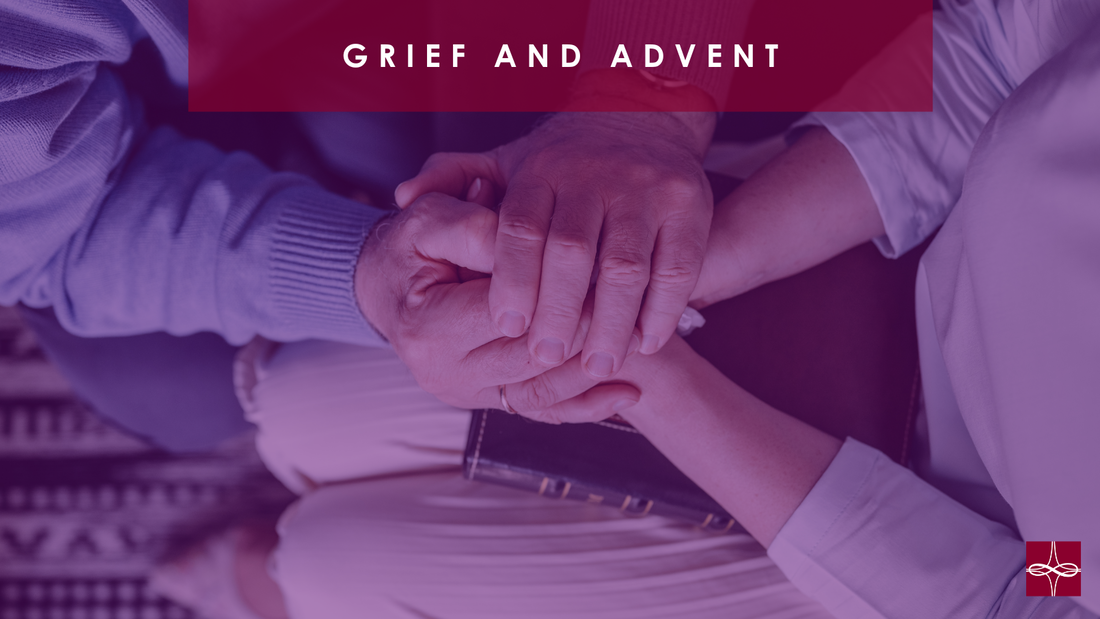
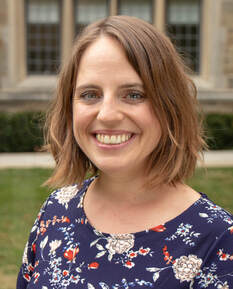
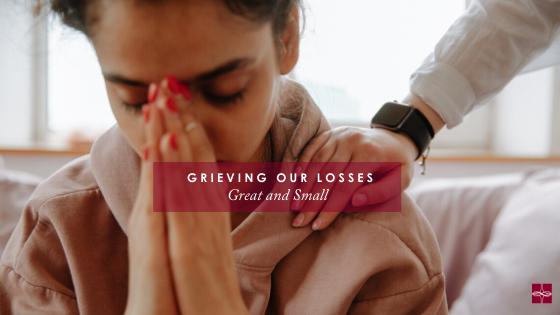
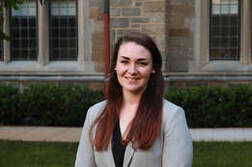
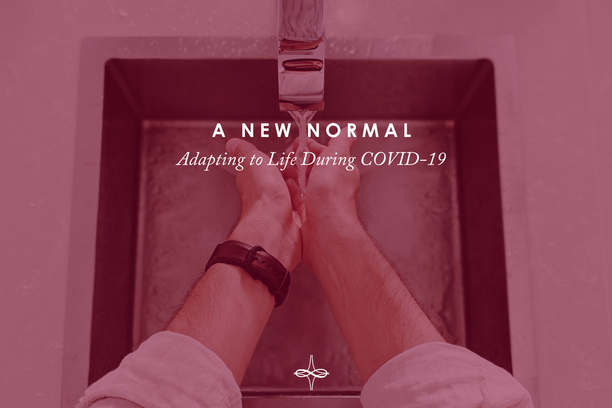
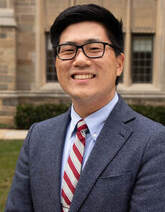


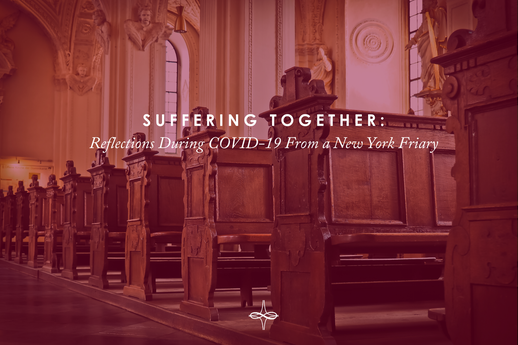
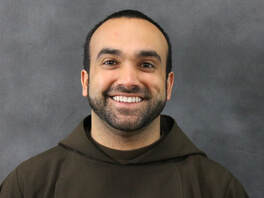

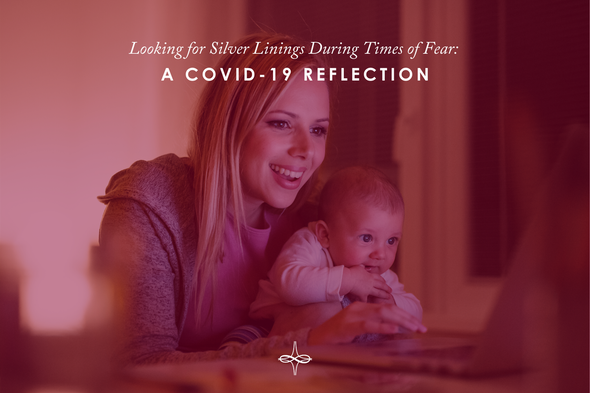

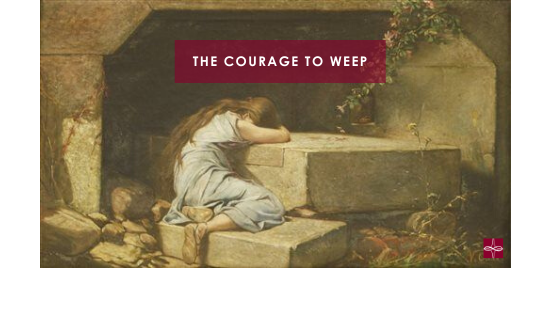

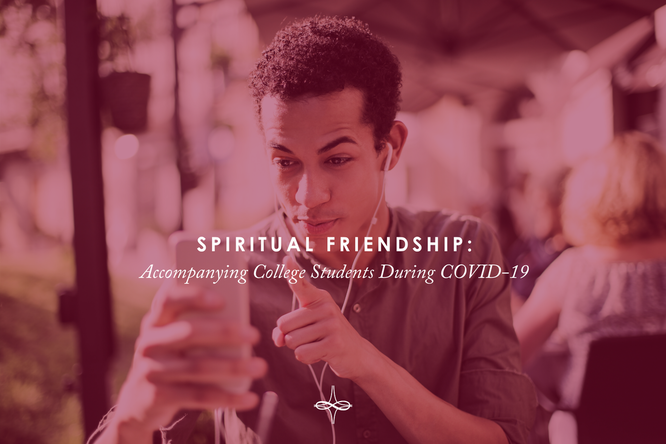
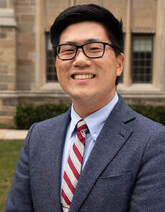

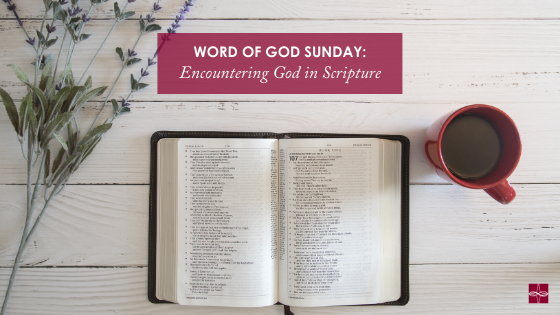
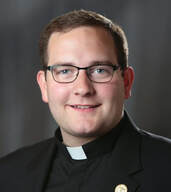
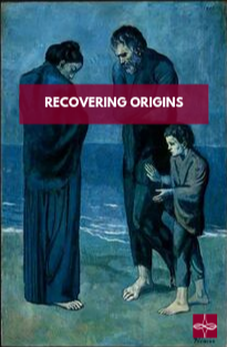

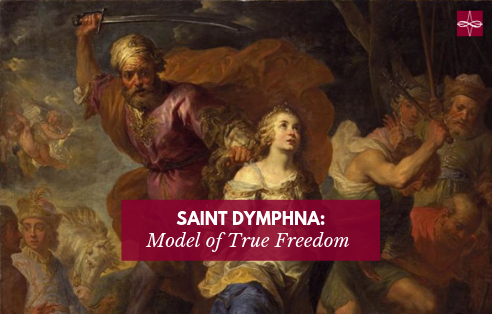

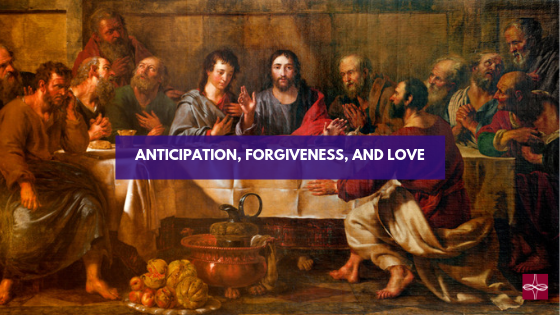

 RSS Feed
RSS Feed